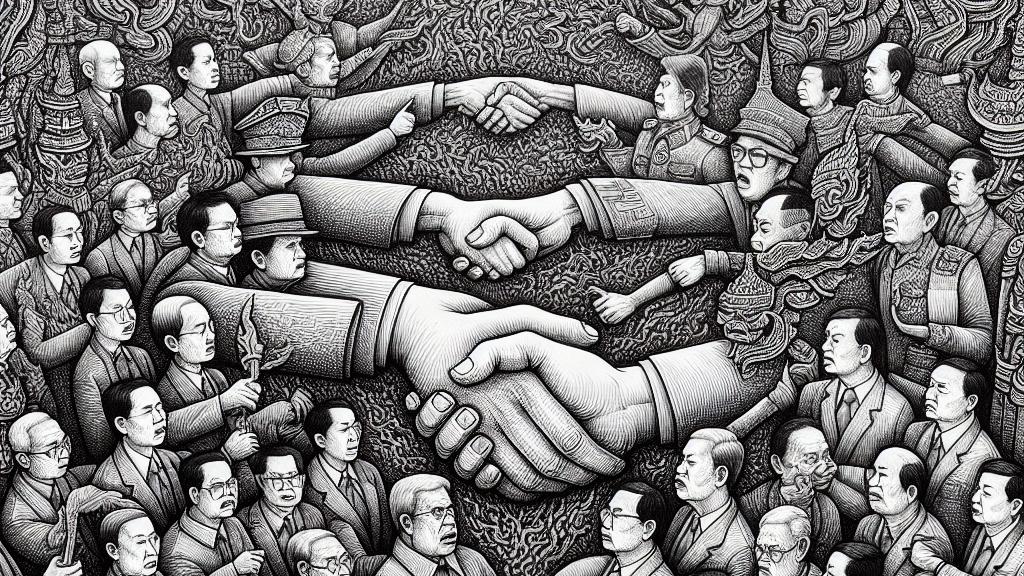Democrat Dilemma: A Bold Alliance or a Misstep?
Overview
- The Democrat Party's coalition with Pheu Thai signals a significant turning point in Thai politics.
- The decision has sparked internal divisions and raised concerns about party integrity.
- Future elections will test the viability of this alliance amid shifting voter loyalties.

A Pivotal Shift in Thai Political Dynamics
On August 29, 2024, the Democrat Party of Thailand made a historic decision that has reverberated throughout the country's political landscape—voting unanimously to join a coalition government led by its former rival, Pheu Thai. This move comes on the heels of Pheu Thai's abandonment of the Palang Pracharath Party due to mounting internal conflicts, showcasing a significant shift in allegiances within Thai politics. Established in 1946, the Democrat Party's struggle to win elections in recent decades has left it increasingly vulnerable, and critics argue that this coalition may only hasten the decline of a political party once revered as a cornerstone of Thailand's democracy.
Internal Conflict and Resistance to Change
Despite the official approval from 34 board members and MPs, the Democrat Party is grappling with significant internal dissent. Many seasoned members and loyal supporters have expressed their discontent, with notable resignations, such as that of Sirichok Sopha, a former MP with over 30 years of experience. These departures highlight deeper philosophical divides regarding the party's future direction. Party leaders, including Chalermchai Sri-on, find themselves at the center of a storm, as they struggle to balance the demands of party unity with the expectations of a changing electorate. Critics fear that this alliance with Pheu Thai, a party closely associated with past political upheavals, could tarnish the Democrat Party's reputation, alienating core constituents who have long championed the party’s principles.
The Electoral Landscape and Future Prospects
The implications of this coalition extend beyond party lines, potentially reshaping the broader electoral landscape in Thailand. With younger voters increasingly supporting progressive movements like Move Forward—part of a wave aimed at reforming traditional political structures—the Democrat Party's strategy must evolve to keep pace with these changes. The outcomes of future elections will be pivotal in determining whether this alliance strengthens the party’s position or accelerates its obsolescence. Observers predict that the electoral strength of new, reform-oriented parties poses an existential threat to established players like the Democrat Party. The leadership must not only manage existing tensions within the party but also connect authentically with a disillusioned electorate that yearns for transparency and progressive change.

Loading...